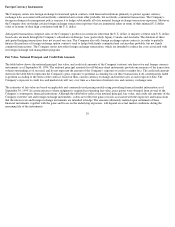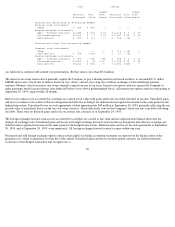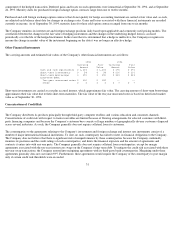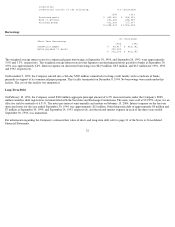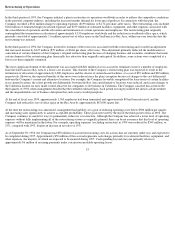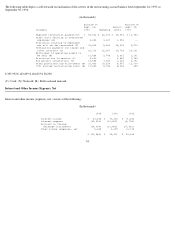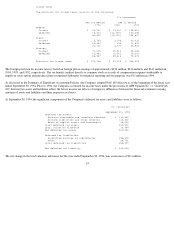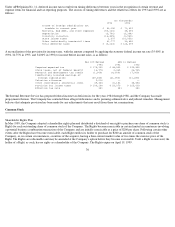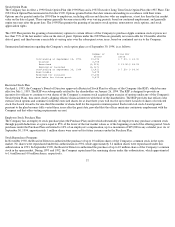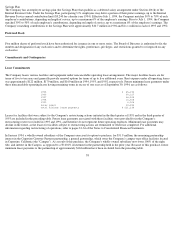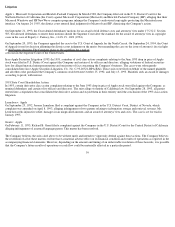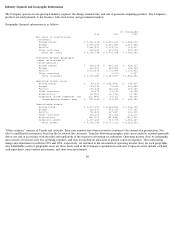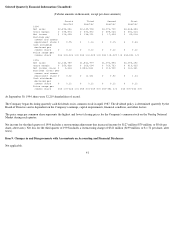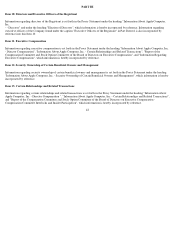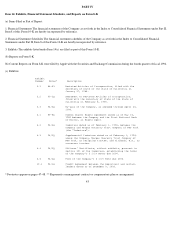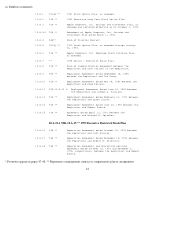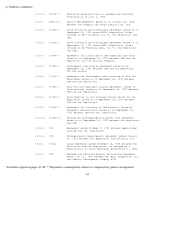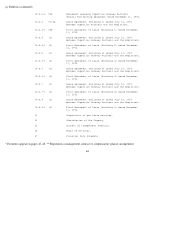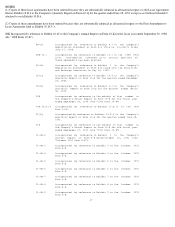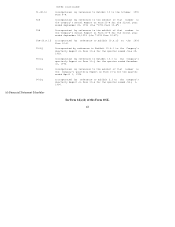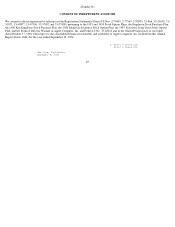Apple 1994 Annual Report Download - page 42
Download and view the complete annual report
Please find page 42 of the 1994 Apple annual report below. You can navigate through the pages in the report by either clicking on the pages listed below, or by using the keyword search tool below to find specific information within the annual report.
Litigation
Apple v. Microsoft Corporation and Hewlett-Packard Company In March 1988, the Company filed suit in the U.S. District Court for the
Northern District of California (the Court) against Microsoft Corporation (Microsoft) and Hewlett
-Packard Company (HP), alleging that their
Microsoft Windows and HP NewWave computer programs infringe the Company's audiovisual copyrights protecting the Macintosh user
interface. On August 24, 1993, the district court entered final judgment for Microsoft and HP, dismissing the Company's action.
On September 21, 1993, the Court denied defendants' motions for an award of full defense costs and attorneys' fees under 17 U.S.C. Section
505, but allowed defendants to renew their motions should the Supreme Court alter the standard for the award of attorneys' fees in copyright
cases in the case of Fogerty v. Fantasy, Inc., 114 S. Ct. 1023 (1994).
On September 20, 1993, the Company appealed the case to the U.S. Court of Appeals for the Ninth Circuit. On September 24, 1994, the Court
of Appeals issued its decision affirming the district court judgment on the merits but remanding the case on the issue of attorney's fees in light
of the Fogerty decision. The Company plans to file a petition for a writ of
certiorari in the Supreme Court of the United States.
In re Apple Securities Litigation (1993) In 1993, a number of civil class action complaints relating to the June 1993 drop in price of Apple
stock were filed in U.S. District Court against the Company and certain of its officers and directors, alleging violations of federal securities
laws for alleged material misrepresentations and omissions of fact concerning the Company's business. The cases were subsequently
consolidated into In re Apple Securities Litigation, Civ. No. C-93-20521-RPA(EAI). These suits were filed on behalf of the named plaintiffs
and all others who purchased the Company's common stock between October 15, 1992, and July 15, 1993. Plaintiffs seek an award of damages
according to proof, with interest.
1993 State Court Shareholders Action
In 1993, certain derivative class action complaints relating to the June 1993 drop in price of Apple stock were filed against the Company, as
nominal defendant, and certain of its officers and directors. The suits allege violations of California law. On September 28, 1993, all parties
entered into a stipulation that consolidated the derivative actions and stayed them in their entirety until the conclusion of the 1993 class action
litigation.
Lemelson v. Apple
On September 25, 1992, Jerome Lemelson filed a complaint against the Company in the U.S. District Court, District of Nevada, which
complaint was amended on April 8, 1993, alleging infringement of two patents relating to information storage and retrieval systems. Mr.
Lemelson seeks injunctive relief, damages in an unspecified amount, and an award of attorneys' fees and costs. The case is set for trial in
January 1995.
Grant v. Apple
On February 11, 1993, Richard B. Grant filed a complaint against the Company in the U.S. District Court for the Central District of California
alleging infringement of a natural-language patent. This matter has been resolved.
The Company believes the suits cited above to be without merit and intends to vigorously defend against these actions. The Company believes
the resolution of all of these matters will not have a material adverse effect on its financial condition and results of operations as reported in the
accompanying financial statements. However, depending on the amount and timing of an unfavorable resolution of these lawsuits, it is possible
that the Company's future results of operations or cash flow could be materially affected in a particular period.
39


